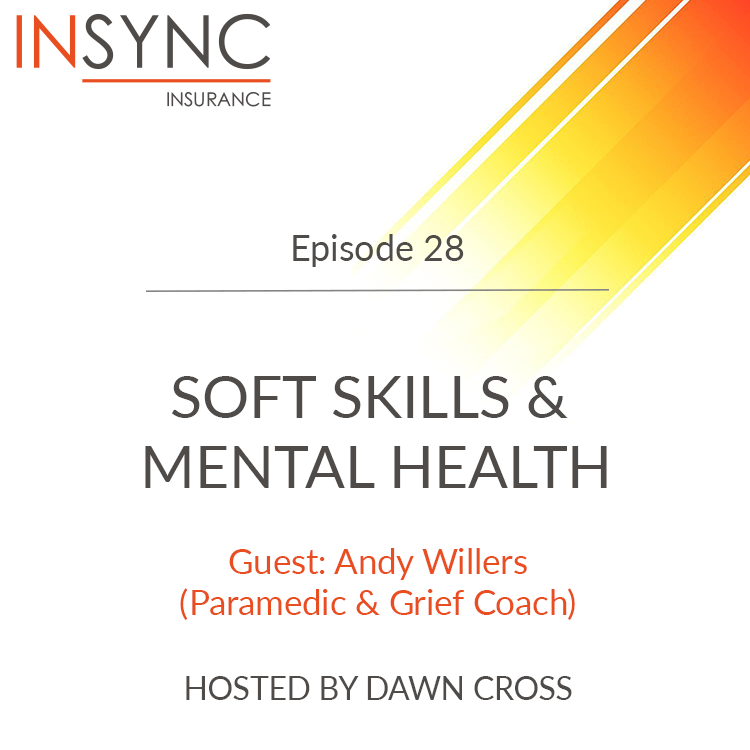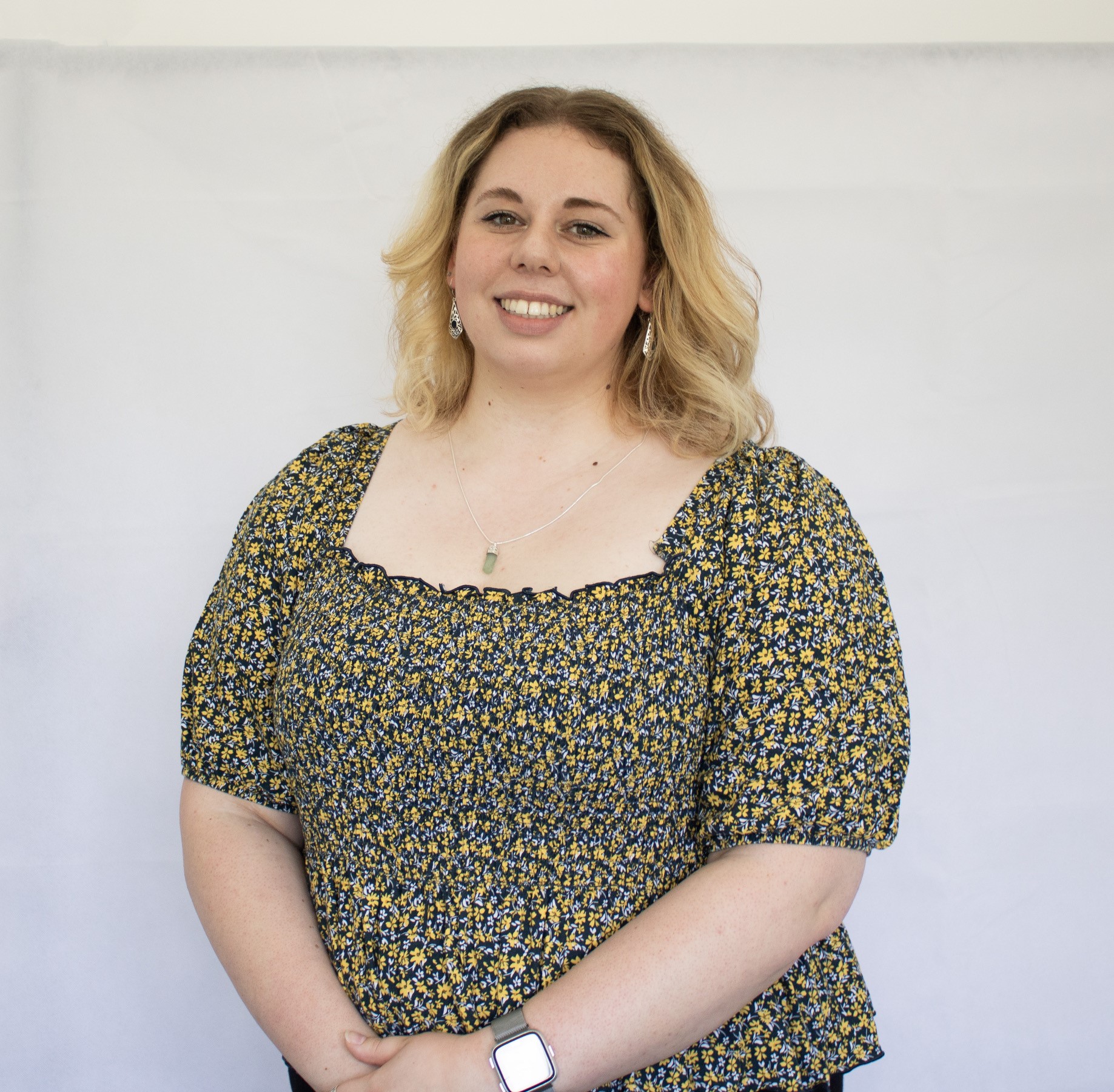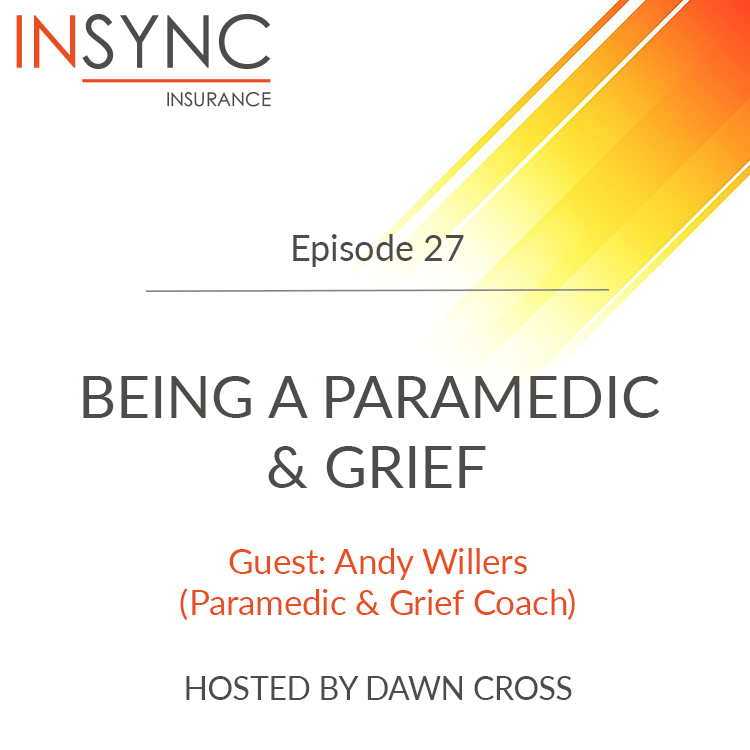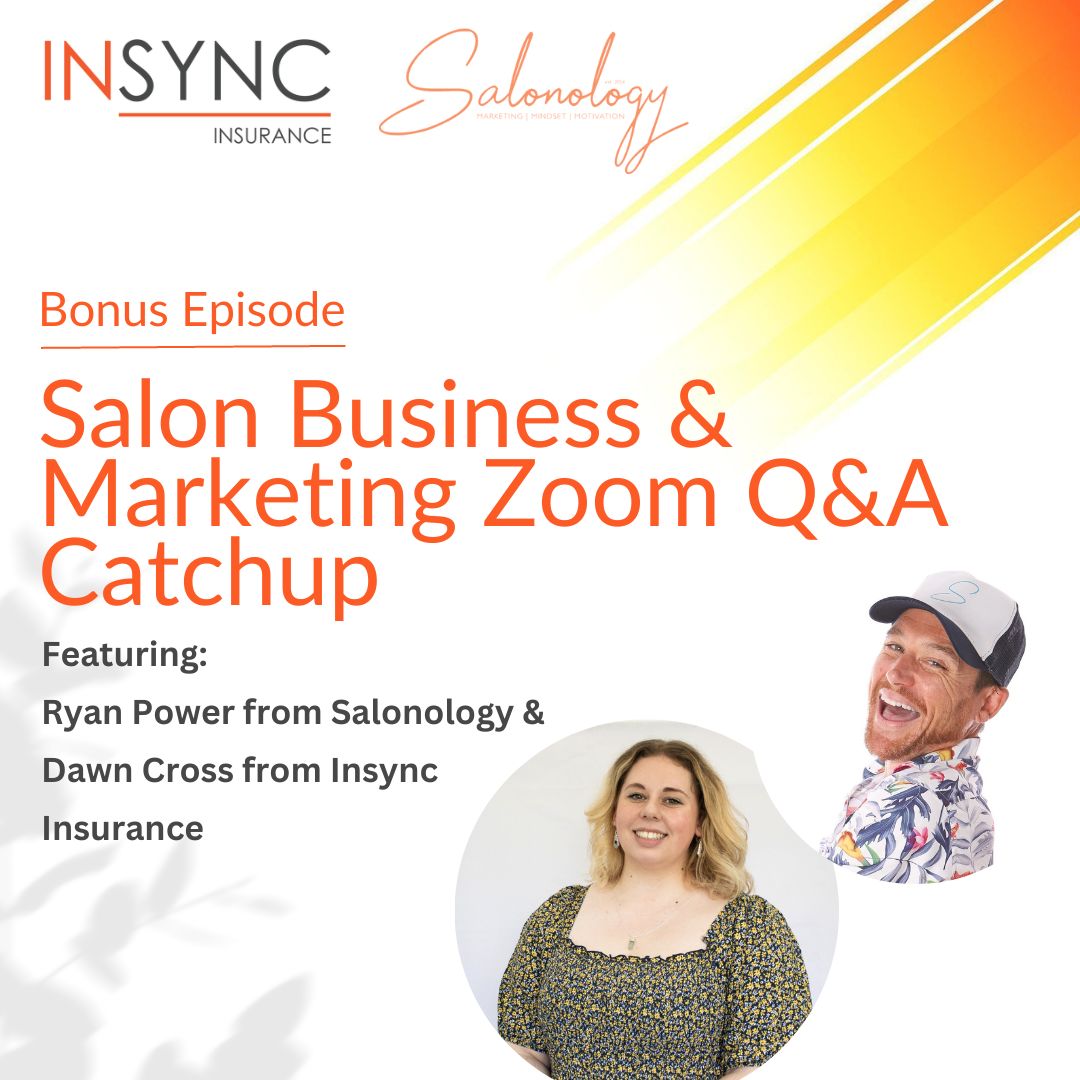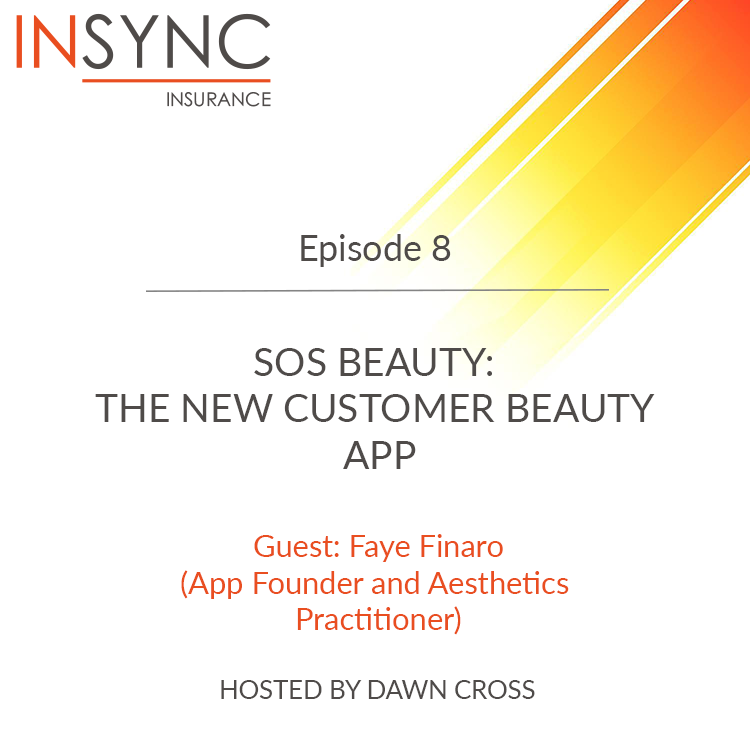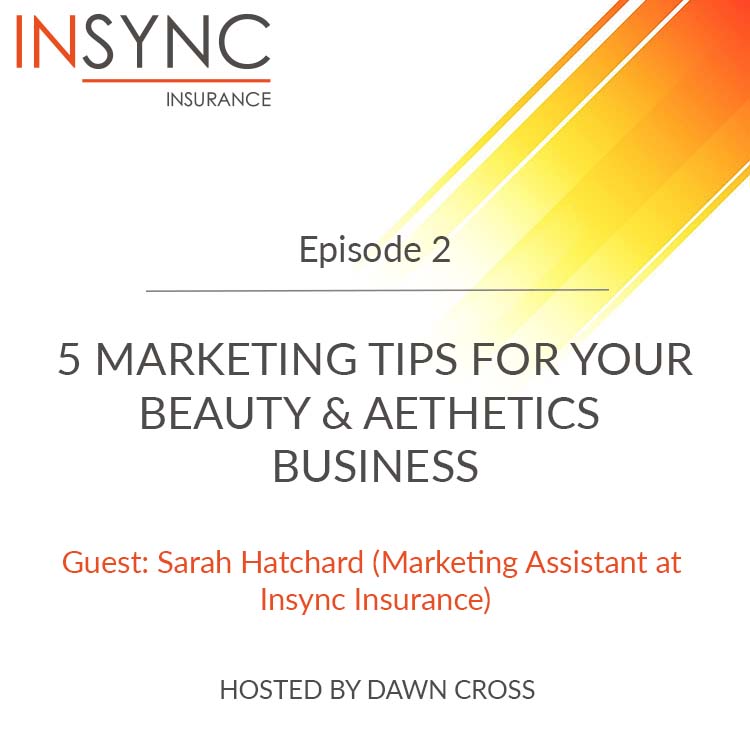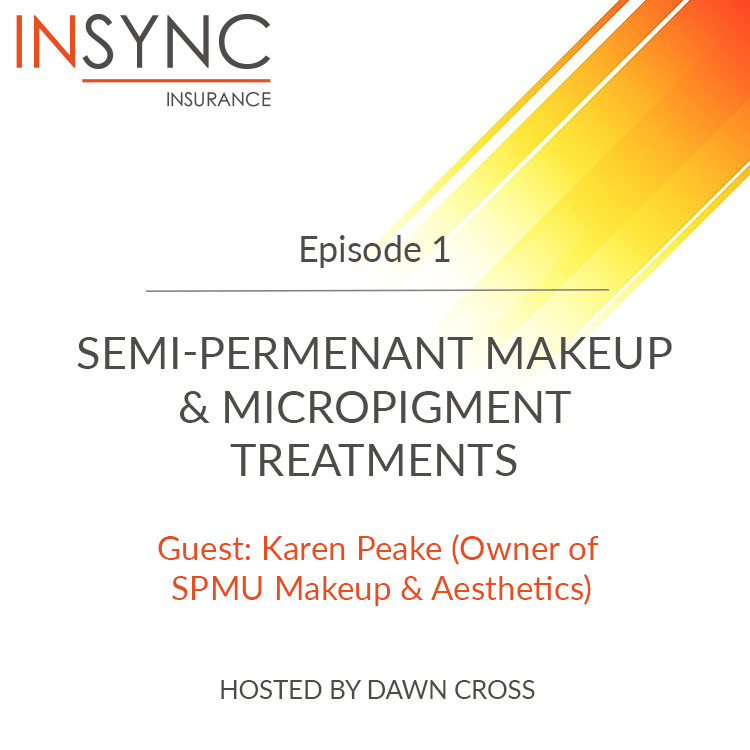Episode Transcript
[00:00:06] Speaker A: Welcome to the in sync insurance podcast. I'm your host Dawn Cross and today I'll be discussing soft skills mental health with returning guest Andy Willis.
If you enjoy our podcast, make sure to leave a rating on your favourite podcast directory.
[00:00:23] Speaker B: Brilliant. Well, thank you so much for agreeing.
[00:00:25] Speaker A: To come back on the podcast.
[00:00:27] Speaker C: It's a pleasure. I really enjoyed last time, so it'd be great to have a chat again.
[00:00:31] Speaker B: Yeah, brilliant. So offshooting from the last podcast to kind of talk more about soft skills for paramedics or even just medical professionals that you don't necessarily get taught at university or especially for the newer trained people. So I thought it'd be interesting to get your point of view and obviously you've got many good people skills.
[00:00:51] Speaker C: Thank you.
[00:00:52] Speaker B: So I thought it'd be really great to pick your brain a little bit more about this side of things because it's maybe something, it's the last thing you think about, but like you're saying in the previous podcast, it's actually one of the first things and skills you probably use when you're on the job.
[00:01:05] Speaker C: Yeah, it's one of those things that you really can't teach people that comes with experience, but maybe it's something that we need to focus on more now because the route into becoming a paramedic is very different from the traditional route. So where traditionally paramedics had maybe spent a long time within an ambulance setting, they'd had lots of interactions.
They were used to the way that they lifted and the way they drove and the way that they spoke to people.
And we cover a lot of those things in university, but we haven't got that long period before becoming a paramedic where we can develop those skills with real life patients. And it's one of those things that I don't think I ever realized how important it was until I don't know if I shared this last time, but I appeared in the very first episode of Ambulance on BBC One and in that we tried to resuscitate somebody and it was unsuccessful, unfortunately.
But when I sat down and watched the screening, the thing that really touched me so deeply was in my communication with the gentleman's sister and there was some physical contact. I think I ended up holding her hand while I told her that unfortunately, we'd not been able to save her brother. And I'd never thought about that element of my work before. In fact, if anything, I would always have been the person that said, oh no, I hate people.
People are not for me. I'm a really great paramedic, but I'm a really great paramedic because I don't care about people, which is clearly not the truth. And after that, I really put a lot of focus into understanding how as paramedics, we communicate with people.
We, generally speaking, don't see people at the best moment of their life, even if we're delivering a baby, which is an amazing experience.
Most people don't generally want to be delivering their baby on their lounge carpet. They kind of maybe had this vision of how it was going to happen in hospital and it was all going to be lovely and it was going to be a midwife. And then they've got a paramedic with a giant beard and loads of tattoos laying on the lounge floor with.
So in whatever way that we interact with the public, it's generally speaking, not at their best time. So the way that we communicate and the way we offer reassurance and make people feel like everything's going to be okay is super important.
And I don't know how you learn that outside of doing it. We all draw on our own experiences and the way that maybe we're treated in certain circumstances. I think I'd really urge everybody, not even just paramedics, anybody, that deals with the public and possibly deals with them not at their best, that they really focus on the way that they communicate because it has such a massive impact. Another thing that's really reinforced this for me, and I may have touched on this before, was the times when people come up to you in the street and go, oh, you were the paramedic, you did this thing.
My mom, my dad, my brother, my sister, me. You were amazing, you're amazing, you must remember.
And I probably dealt with 100 other patients since that day. Sometimes it's not even in recent times.
I met a lady in a care home that apparently I'd been out to her mum some years beforehand and she still remembered because I might have been the only paramedic she ever met. I've met lots of patients in lots of different circumstances. Generally speaking, most of them haven't met a paramedic before in that circumstances. So we kind of get one opportunity to be what that person needs, and what that person needs is reassurance and they need to think that everything will be okay.
There's lots of stuff around cortisol and the way that the body reacts in stress, and I think we talked about this before, so although it might seem irrelevant, actually, it can have a really big impact on the way that that person's body reacts, but also from a way that we look at how we manage a patient. It seems like a really obvious thing to say, but the calmer they are, the more relaxed they are, the safer they feel, then the easier they're going to be to manage. So even from your own perspective as a paramedic, just being that calming influence, being in control or seemingly in control and everything else just makes your job easier. And it might be that sometimes that's not the appropriate way to communicate with people, because sometimes you may need to take control of the situation, you might need to be firm and you might need to tell people what to do. But I feel that that can still be done from a real human place, a place of kindness, a place of respect. You could be dealing with someone that's intoxicated or we know that people in pain can respond very differently from the way they normally do and we might need to be firm, but there are ways of being firm that still maintain your connection. On the coaching side, communication is really pushed. So when I'm coaching, everybody expects me to be a good communicator. People often ignore that part of being a paramedic. But for me, the reason I'm probably a coach is because I feel like I'm a good paramedic, I'm a good communicator. And it's those communication skills that I've learned over time as a paramedic and that understanding of the way that human beings connect that's brought me into the coaching space and very specifically into coaching people through grief or loss or people that are possibly at the end of their life. And that stuff all depends on communication. But I'd say that where I learned that communication, where I learned that connection, was whilst being a paramedic.
I'm really interested in how we incorporate that into becoming a paramedic.
What can universities what part can universities play in delivering that? I know that when I used to work for London Ambulance and I was a practice educator, so I'd have students on their placements and I was always really well known for just telling students to get on with it.
There's this lovely model about C one, do one.
I never adopted that day one of a patient's placement. Patients don't do placements, which is a shame.
First day of a student's placement, I'd sit them in the front of the ambulance and say, okay, you're in charge. And I think sometimes they think I was lazy or I was making them do everything, but it's the only opportunity they get to do that stuff in a safe environment. There's a story that I'm going to share. I'm going to share your story about Sean. And I'm not even going to change his name. So Sean came to me as a student whilst I was still in London. So it was about 200 years ago. I think he's now an absolutely outstanding paramedic. I'm very proud of all my students. So Sean came to me as a sean came to me as a student and I did my usual thing and I'd say something like, hey, Sean, right, okay, so you're doing all the work for your placement. Scott Smile Crewmate and myself, we're going to take it in turns to drive.
And when I'm not driving, I'm just going to hang out in the back and let you crack on with it. And it was his first placement. He was quite early into his course and he'd only come to me because the practice educator he was going to have wasn't available or was sick or something like that. So anyway, so we go through the placement and Sean does all of the work. Scott and I take turns and then we get to the end of the first placement and Sean absolutely explodes. He's like, I can't believe you've made me do everything. You're so lazy. You're a terrible practice, Be. I'm never coming back. So then Sean went away, and a month or so later, I get a little message from him. Hi, Andy. Hope you're well.
I've got my next placement coming up and I wondered if you would be available as my practice educator. Oh, really, Sean? I didn't think you were coming back.
So Sean came back and we had him for all his placements, and he was amazing. And we had a conversation about it, and he said that he'd gone back to university after his first placement. And he'd talked to his friends and his classmates, and they'd been like, oh, my placement was amazing. I got to watch my paramedic do this, and I got to watch my paramedic do that. And we went to this, we went to that, and Sean was like, oh, you're so lucky. I had to do this. I had to manage this cardiac arrest. And then I think the penny dropped. But where his colleagues and his friends, his classmates had seen stuff, sean had done it, and he'd done it safely because for all of the play acting around, I don't care, you're just doing all the work. Actually, I was watching him really closely, and I really trusted my old crewmate. And between the pair of us, we watched him and we supported him and we made sure he had everything that he needed. But we moved him out of his comfort zone a little bit. And one of the things that I've learned through learning to be a coach is that the place that we grow is outside of our comfort zone.
There's no growth. You stay in your comfort zone, you're not growing. And part of the university process, part of the becoming a paramedic is all about growth. And we do lots of stuff around teaching and we do lots of stuff about learning. We learn lots of practical skills, lots of underpinning theory, which are really, really important. But I'm not sure where the opportunity to actually grow as a person is. And it seems to me that the thing that you really need to be an outstanding paramedic doesn't come inside your comfort zone.
[00:12:13] Speaker B: Definitely. And I think because it's such a different environment, for example, if you decided to work in an office space, there's only so much you can go out your comfort zone with that you never know, might be handed a project and be like, okay, just run with it. But it's always key to get that first hand in experience, and if you can do it safely, that sounds amazing what you did for him. And I'm sure as well that he's taken away so many new skills.
I was wondering, you had gone about human connections and stuff earlier, I guess. How have you managed to be able to kind of obviously still be empathetic to a situation, but obviously not take it to heart at the end of the day and not let it weigh with you because obviously you do your best, but obviously, if things don't go right, obviously it's not necessarily your fault. And it's just, unfortunately, you can't be a miracle worker. So I'd love to delve into a bit more like how do you separate your feelings sometimes at the end of the day or when you decompress?
[00:13:13] Speaker C: That's a really big one. Try not to use the word interesting, but it's really super interesting and I guess there are numerous layers, multiple layers around that.
Firstly, the connection is a new connection and it's based on need. So you're there because the person, the patient needs your help. So it's not like a long standing relationship that you already had, although sometimes even in the ambulance service you might see the same people numerous times and that can make things more difficult. I always used to work on the principle that as long as I made everything better and didn't make anything worse, then that was okay. I'd always try and do my best, but you're quite right, not everybody's going to be saved. I think there was always a perception of the ambulance services that they would come up and they'd save everybody, but the reality is it's not true, sadly. Lots and lots and lots of people. Probably if we looked at cardiac arrest in isolation I don't know what the figures are for success rates, but I would suggest they're fairly small, because a lot of the people that you go to, it's been too long, or they've got too many underlying conditions, it's never going to be successful. And jumping off topic slightly, I've always felt that one of the most important things about a resuscitation is around providing a bridge or a pathway for the loved ones, for the person we're working on. And I've often felt that attempted resuscitation is much more around the people that are close to the person we're trying to resuscitate and providing them with an opportunity to go from the person I care about is alive to the person I care about has passed. And I think the activity around cardiac arrest and resuscitation, attempted resuscitation, provides that pathway. So it gives us an opportunity to prepare for the worst. Everything's been done, we've tried everything, we were unsuccessful. But as I say, off topic very slightly, so I think there's some stuff around professionalism, there's stuff around taking pride in what you do and doing what you do to the best of your abilities. And I think if you work on the premise that I'm always going to do my best, but I'm accepting that the outcome that we get might not be the outcome that our patient or their loved ones might have wanted. I think that helps to manage those feelings. I also think that we've talked about connection quite a lot and I think in providing a connection, in connecting either with the patient or with the people around them, maybe just with people on the scene, we managed to get some kind of closure. And closure is really important. It's probably not strictly closure because the thing that, again, coming in from the coaching is I know that grief is a process and we also know that grief is culminative. And one grief can build on another grief can build on another grief. And we also know that traditionally the ambulance service have not been very good at managing the emotional load of being a paramedic. And we know that that has an impact on how long people stay within the role. And I think this is something that we touched on before. But for me, and I can only speak about me because I'm the only person, I know the emotions and the mental processing of falling over my words today. But for me, very much around professionalism, very much about doing my best, very much about accepting that there are things that I can't do anything about, but also very much around having that connection for however short a period and knowing that by being there I've had a positive impact. I've got another story for you. No names in this one. No student.
I remember once I was on a car in East London I was on a car in East London for a long time for the ambulance service, and I went through a period of getting imminent births first thing in the morning. First thing in the morning for everybody else. Last thing at night for me because I would be just finishing my shift. It was always at the end of a long shift, there'd never be a midwife available and all the other ambulances would be changing over there, so there'd be no help. So it would always just be me and Mum. And anyone that's met me knows I'm probably never going to make a midwife. But I remember I'd had a few of these and I was laid on the floor with Mum and I had this sudden thought that I just didn't want to be there. I didn't want to be there. I felt like I didn't know what I was doing. I didn't feel very safe. Birth always bothered me because it seemed in my oversimplified paramedic mind that it was the only situation that I'd come into as a paramedic where everything was okay to begin with and I could mess it up, generally speaking, with patients, something's horribly wrong, well, she wouldn't be there. And everything that you've got in your arsenal as a paramedic makes stuff better in some way or another. I always felt with birth that babies were perfect and the only fly in the ointment was a paramedic who could mess it up. Probably not strictly true, and I think I've come to terms with that now that women are really good at having babies and probably don't need a paramedic anyway. I'm digressing again. I was laying on the floor with this lady, and I had all this stuff going through my head about how I was going to do stuff wrong and how this baby was perfect, was going to mess it up. And how Mum would be much better off with somebody else and how I really didn't want to be there and how I really wanted to go home and go to bed.
[00:19:14] Speaker B: Yeah.
[00:19:15] Speaker C: Then it kind of dawned on me that I was all Mum had. There wasn't anyone else coming. There was just Mum, baby and me. And we kind of had to sort it out between us. Mum was the expert. Mum was built to have babies. Mum had it SUST. And really that the only thing that I had to bring to the party, other than a few a bit of medicine and some skills, was to be reassuring and make Mum think that everything was going to be okay. And there's this analogy that they use within the ambulance service about paramedics being like swans on the surface, graceful and elegant and then under the water furiously.
And at that moment that's exactly how I felt outside, calm. Everything's going to be fine, we're going to be good. We've got this, mum. The white carpet is going to take some cleaning, but that's okay.
You and Baby are going to be fine. And we were fine. Everything was fine. Mum absolutely nailed it. I managed to hold it together long enough for Mum to think that everything was okay. The big green bag had all the magic in it that she might need if anything went wrong. But actually what Mum needed was Mum. And she did a great job. It's a great job, beautiful baby. But it was another learning point around managing my emotions.
And it seems to me that the moment that it was okay was when I realized that the bit that was important to Mum was the connection. And it was in the connection and in the reassurance that came with that connection that Mum was able to do what she needed to do with very little input from me, I have to say. And I guess going on rambling terribly. But going back to your original question, once you realize as a paramedic what your role is, things that you can do, the things that are important, the things that are outside of your control, that becomes a guideline or a pathway towards managing your emotions and the way that you respond to things. If you focus on the things that are doable the things that are within your control and you accept that there is stuff that's outside of your control, which is pretty much how life works, then you've got a really good framework for managing your emotions and allowing the stuff that's outside of your control to go and just to focus on the things that you can change and the things that you hold. And so maybe from a practical point of view, if we can learn to hold on to the positives and the things that we did well and the things that made a difference regardless of the outcome, then we've got some stuff there that we can anchor our and emotions too. And we can keep our own mental health healthy, mental health healthy, keep our own mental health and not let things build up.
[00:22:43] Speaker B: Definitely. I was wondering, obviously, leading on to my final question really it's like obviously mental health as a medical practitioner you always need to keep on top of it because obviously you can't control the situations. You might be faced with something that really leaves a mark on your brain, so to speak.
Do you have any kind of resources or skill recommendations for anyone listening that might be able to help them maybe cope a bit better on the job or even just like stuff they can look up in their own time?
[00:23:18] Speaker C: I think there are some good resources out there. I think the ambulance services are getting much better at looking after the mental health of their staff and the HCPC, which is our governing body, have just added fitness to practice around mental health within your requirement to register.
So now there's a real obligation to look at your own mental health, look at how you're coping with things. And they've now stipulated that you have to seek help where you feel that that might be a problem. So I'm hoping that that's going to be a catalyst to help the ambulance services or push the ambulance services to provide more robust help. I know in London there are referral pathways into counselling and other support services. I'm sure the other ambulance services are the same as a coach. I work with lots of paramedics easily available on LinkedIn and I have a big network of paramedics on LinkedIn and I've worked with lots and lots of those. But that's dependent on people being proactive, that's dependent on people recognising things that they need to work on and either going to HR within the Amlet service or seeking help externally. I think the other thing that we can do is we can keep an eye on our friends and on our colleagues and try and recognize if people are maybe struggling. It's not an easy conversation to have if you feel that one of your colleagues isn't in a great place, but you might be the only opportunity they've got, you might be the only person that recognizes it.
There's lots of stuff around alcohol use, even drug use, gambling, relationship problems, loads and loads and loads of other stuff that you might see in your colleagues.
And maybe the thing to do is use some of that connection building that you've developed as a paramedic and just try and reach out to your reach out to your colleague, reach out to your crewmate, reach out to that person that you chat to over a cup of tea on station in the morning and just are you okay? Sometimes that's all it needs. Maybe they're not going to tell you, but maybe the fact that somebody else has recognized that they're maybe not okay might be enough to help them to go out and look for someone that can help them.
Maybe just someone recognizing that things are not okay will help them to start opening up. And it might not be to the person that asked them in the first place. It might be to somebody else.
If you don't recognize those things, if you don't connect, if you don't offer a hand almost, then maybe nobody else will.
[00:26:29] Speaker B: I think that's definitely key and it's something hopefully as well, that everyone can take away or already has done when being in the ambulance services. So is there anything else you'd like.
[00:26:43] Speaker A: To add before we wrap up the episode?
[00:26:47] Speaker C: Just thank you.
I love talking. I love talking.
I've really enjoyed doing these. They've been fab. Yeah, no, thank you. And I'm out there. There are other people like me. There is help. The Ambit services have got support in place, but it only really works if you go and look for it. So, I mean, I guess the thing I'd leave with is if you need help, there is help available and if anyone wants to talk to me, then that's great. I always keep a door open for people within the ambulance services because I know that I'm really lucky to be sort of kind of well placed to have a sort of paramedic head and a coaching hat, so people can always look me up, reach out, and I'll always find time to talk to people. But I'm not the only one. There are lots of people that will be able to help.
[00:27:41] Speaker B: That's absolutely brilliant. Thank you so much for coming on and speaking with us again.
[00:27:45] Speaker C: No, it's been my pleasure. Been my pleasure.
[00:27:50] Speaker A: Thank you to my guest today, Andy Willis, for discussing soft skills and mental health in paramedics. If you're interested in the services, check out the podcast description.
I have been your host, Dawn Cross, and tune in next week for another episode.
Vincinc is one of the UK's fastest growing insurance providers, offering comprehensive cover of SMEs and self employed across the UK. Our expert team can tailor your insurance to meet your individual business needs and hair prices. From our Lloyds of London approved partners, we offer a five star service and FIFO platinum trusted winners four years in a row.
